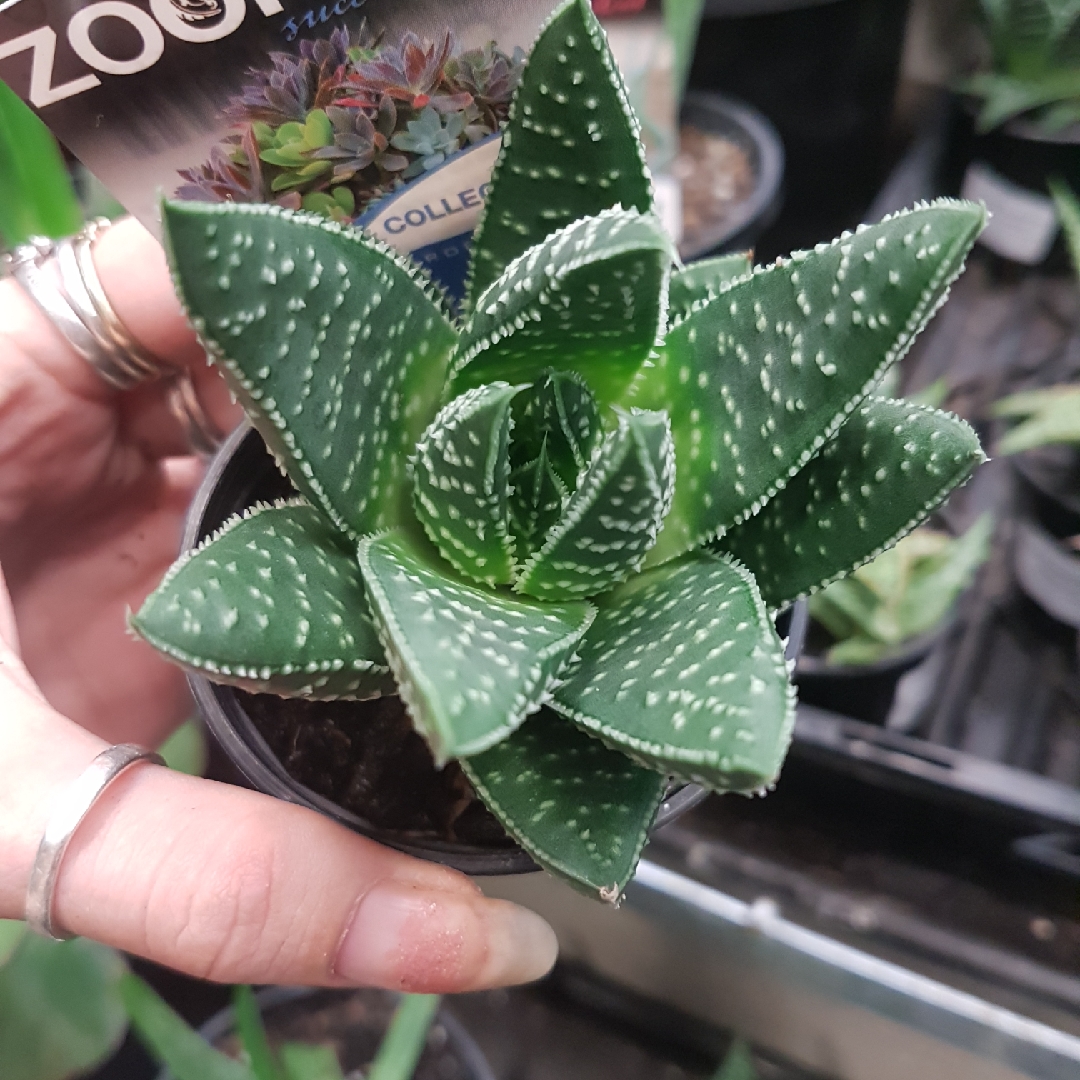
Gasteria Royal Wolfgang
Gasteria 'Royal Wolfgang'
Gasterias are recognisable from their thick, hard, succulent "tongue-shaped" leaves. Gasteria are grown in well-drained, sandy soils in light shade. They can be propagated by off-sets and cuttings. They are also commonly propagated by seed. Germination usually occurs within 8 days but may take as long as one month, depending on the species.
Contributed by @NaayNaay
-
Partial shade
-
Very little water
-
A little frost hardy: 32F (0°C)
-
Light and free draining
Common name
Gasteria 'Royal Wolfgang'
Latin name
Gasteria Royal Wolfgang
type
Succulent
family
Asphodelaceae
ph
5.0 - 7.0 Acid - Neutral
Plant & bloom calendar
-
Best time to plant
full grown dimensions
 0.30 M
0.30 M
0.30 M
0.30 M
Gasteria Royal Wolfgang
Gasterias are recognisable from their thick, hard, succulent "tongue-shaped" leaves. Gasteria are grown in well-drained, sandy soils in light shade. They can be propagated by off-sets and cuttings. They are also commonly propagated by seed. Germination usually occurs within 8 days but may take as long as one month, depending on the species.
Propagation
From Early Spring TO Late Winter
To propagate by leaf cuttings, remove a leaf and let it lie for about one month (e.g. in a cool window sill), giving the wound time to heal. Then lay the leaf on its side with the basal part buried in the soil. This leaf should root within a month or two, and small plants will form at the leaf base. Young plants can be harvested the following season. They can also grown from seed. Seed should be sown during summer in sandy well drained soil and preferably protected from full sun. The seedlings are slow growing and can be planted out in small containers when they are large enough to handle. The soil should preferably be enriched with compost. They react very well to a liquid organic fertilizer.
Planting young plants
From Early Spring TO Late Summer
Gasteria need light shade to shade, but will take full sun part of the day. (with some sun exposure the leaf develops a nice reddish tint and remain compact) They are tolerant of a wide range of soils and habitats, but prefer a very porous potting mix to increase drainage.













